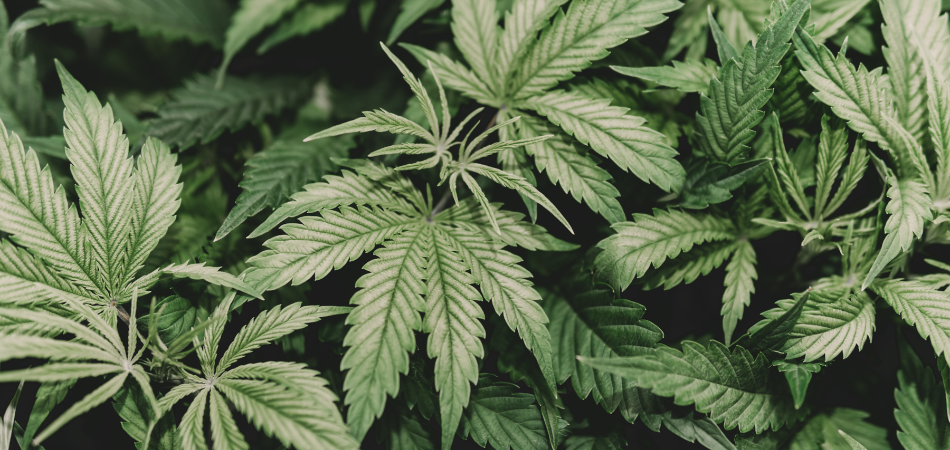
Written by:

Medically Reviewed by:
Last Updated:
June 4th, 2025
Cannabis Addiction | Signs, Symptoms & Effects
Cannabis is one of the most commonly used substances worldwide, often perceived as a harmless recreational drug. However, despite its widespread use and increasing legalisation in some parts of the world, cannabis carries the potential for addiction and can have significant negative effects on both physical and mental health. For many, what starts as occasional use can develop into dependence, leading to disrupted lives, strained relationships, and serious health consequences.
What is Cannabis?
Cannabis, commonly known as marijuana, is a psychoactive drug derived from the Cannabis plant. It is widely used for recreational and medicinal purposes due to its effects on mood, perception, and pain relief. The primary psychoactive compound in cannabis is tetrahydrocannabinol (THC), which interacts with the brain’s endocannabinoid system to produce the drug’s signature “high.”
Cannabis is available in several forms, including dried flowers, edibles, oils, and concentrates. While it is often perceived as harmless or even a therapeutic substance, prolonged use can lead to dependency and addiction.
What is Cannabis Addiction?
Cannabis addiction, also referred to as cannabis use disorder (CUD), occurs when an individual develops a compulsive need to use the drug despite negative consequences. While many believe cannabis is not addictive, research shows that long-term use can lead to physical and psychological dependence, particularly in those who use it frequently and in high doses.
Cannabis addiction can interfere with daily life, affecting relationships, work, education, and overall well-being. It is particularly concerning among young people, whose developing
What Makes Cannabis Addictive?
Although cannabis is often considered less addictive than substances like alcohol or opioids, its potential for addiction lies in its impact on the brain’s reward system. THC stimulates dopamine release, reinforcing the pleasurable effects of the drug and encouraging repeated use. Over time, the brain adapts to these changes, making it harder for users to experience pleasure without cannabis.
Several factors can increase the risk of cannabis addiction, including:
- Frequent use: Daily or near-daily use significantly raises the risk of dependency.
- High-THC strains: Modern cannabis strains contain much higher THC levels than in the past, increasing addiction potential.
- Genetics: A family history of substance abuse can make an individual more prone to addiction.
- Mental health issues: Those with anxiety, depression, or other mental health conditions may use cannabis as a coping mechanism, leading to dependency.
- Early exposure: Using cannabis during adolescence increases the likelihood of addiction due to ongoing brain development.
Signs and Symptoms of Cannabis Addiction
Recognising cannabis addiction can be challenging, as the substance is often perceived as non-addictive or easy to quit. However, for some individuals, cannabis use can develop into a dependency that impacts daily life, mental well-being, and personal responsibilities. Below are key signs and symptoms that may indicate cannabis addiction:
- Irritability and mood swings
- Insomnia and restless sleep
- Intense cravings for cannabis
- Anxiety or depression
- Decreased appetite and nausea
These symptoms can make it difficult to stop using, reinforcing continued consumption.
- Frequent absences or poor performance at work or school
- Avoiding social engagements to stay home and use cannabis
- Ignoring important responsibilities, such as paying bills or maintaining hygiene
These effects can include:
- Increased anxiety, paranoia, or panic attacks
- Financial strain due to excessive spending on cannabis
- Strained relationships with family, friends, or partners
This can lead to:
- Spending less time with loved ones
- Losing motivation for activities once enjoyed
- Feeling detached from life outside of cannabis use
The Dangerous Side Effects of Cannabis Addiction
Cannabis is often perceived as a harmless substance, with many touting its medicinal benefits and recreational appeal. However, chronic cannabis use can lead to a range of serious health consequences that impact both the body and mind. While occasional use may not pose significant risks for some, addiction and prolonged exposure to THC, the psychoactive compound in cannabis, can result in lasting damage. Below are some of the most concerning effects of cannabis addiction:
Unlike opioids, cannabis does not cause fatal overdoses, but consuming excessive amounts can lead to severe effects, commonly known as “greening out”. Symptoms include extreme paranoia and anxiety, hallucinations, severe nausea and vomiting (cannabinoid hyperemesis syndrome), dizziness, loss of coordination, and increased heart rate and blood pressure. These effects can be highly distressing and may require medical intervention, particularly in individuals with underlying health conditions.
The Impact on Mental Health
Cannabis addiction can have severe consequences on mental health, particularly for individuals who are predisposed to psychiatric conditions. While some people use cannabis to self-medicate for anxiety, stress, or depression, chronic use often exacerbates these issues rather than alleviating them. The brain’s endocannabinoid system, which plays a crucial role in regulating emotions and cognitive function, can become dysregulated with prolonged THC exposure, leading to long-term mental health challenges.
Moreover, studies have found that individuals with cannabis use disorder are more susceptible to psychiatric conditions such as major depression, post-traumatic stress disorder, and generalised anxiety disorder.
Overcoming Cannabis Addiction
For those struggling to break free from cannabis addiction, professional support can make all the difference for those struggling to regain control as they provide the necessary structure, guidance, and coping strategies for long-term recovery.
Here are some of the key components of rebab that can help you overcome cannabis addiction:
- Medically managed detox: Helping you manage withdrawal symptoms safely and comfortably
- One-to-One Counselling: Addresses personal challenges and underlying causes of addiction.
- Range of individual therapies: Therapies such as CBT and DBT help identity triggers and allow you to develop coping strategies.
- Holistic therapies: Includes yoga and mindfulness can promote overall well-being.
- Aftercare and ongoing support: Linwood House provides access to alumni programmes, continued therapy, and support groups to maintain long-term sobriety.
At Linwood House, treatment for cannabis addiction goes beyond simply stopping cannabis use, it focuses on healing the whole person. The rehab experience is tailored to each individual, ensuring that both the physical withdrawal process and the underlying psychological triggers are addressed. Through a structured programme of therapy, counselling, and wellness activities, individuals can explore the root causes of their addiction, develop healthier coping mechanisms, and rebuild their confidence in a supportive environment. With access to expert medical care, mental health professionals, and a strong peer support network, those at Linwood House are given the tools they need to achieve lasting recovery and regain control of their lives.
Take the first step towards recovery
While cannabis may be perceived as a harmless drug, its potential for addiction and mental health risks should not be underestimated. If you or a loved one is struggling with cannabis addiction, help is available. At Linwood House, our expert team provides the guidance, care, and support needed to break free from dependency and build a healthier future. Call us now to learn more about our treatment programmes and how we can help you regain control of your life.













